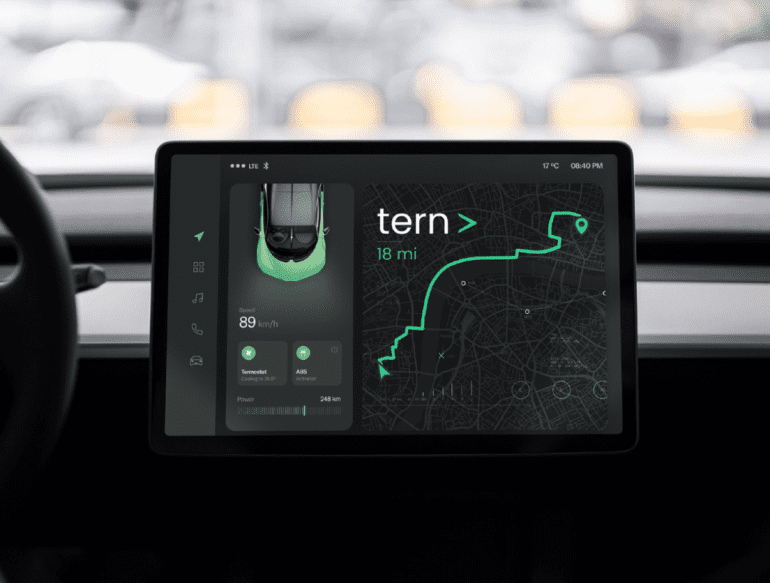- Tern AI aims to provide a low-cost alternative to GPS, addressing vulnerabilities such as signal jamming and spoofing.
- The Independently Derived Positioning System (IDPS) uses AI to achieve GPS-like accuracy without relying on satellite signals.
- The technology integrates with existing sensors in vehicles and smartphones, ensuring continuous and precise location tracking.
- Tern AI has secured $4.4 million in seed funding and plans to collaborate with major mapping services for future integration.
- Field testing begins in July with a commercial launch scheduled for September, targeting logistics, emergency services, and autonomous transportation sectors.
Main AI News:
In today’s interconnected world, the reliance on GPS has become ubiquitous, powering critical systems from aviation and emergency response to precision agriculture and military operations. However, this dependence is not without its vulnerabilities. Threats like signal jamming and spoofing pose significant risks, potentially leading to catastrophic economic and security implications.
Shaun Moore, CEO of Tern AI, a startup dedicated to reducing this reliance on GPS, highlights the pressing need for an alternative. Having recently unveiled their Independently Derived Positioning System (IDPS), Tern AI has secured a substantial $4.4 million seed funding round from investors including Scout Ventures, Shadow Capital, Bravo Victor VC, and Veteran Fund. The IDPS promises a robust solution that can pinpoint locations without the vulnerabilities associated with satellite-dependent GPS.
Traditional GPS functions by receiving signals from satellites orbiting Earth. Devices then calculate their positions by triangulating signals based on time and satellite information. While effective on a global scale, this system is susceptible to localized disruptions. For instance, GPS spoofing has been used to mislead commercial vessels and disrupt military operations. Such vulnerabilities underscore the need for a more secure and reliable alternative.
Tern AI’s IDPS employs advanced AI models that analyze real-time sensor data from vehicles and smartphones, along with third-party map data, to deliver precise positioning information. This approach eliminates the risk of signal jamming or spoofing, ensuring continuous and accurate location tracking even in challenging environments such as urban canyons or remote areas.
“We can achieve GPS-like accuracy without relying on satellite signals,” explains Moore. “By leveraging existing sensor capabilities in vehicles and smartphones, our technology enhances reliability and reduces costs compared to traditional GPS solutions.”
The startup plans to collaborate with leading mapping services like Apple Maps, Google Maps, and Waze to integrate their AI-driven positioning model seamlessly. This strategic approach not only enhances positioning accuracy but also ensures compatibility with existing infrastructure, making adoption straightforward for end-users.
Diana Furchtgott-Roth, former deputy assistant secretary for Research and Technology at the U.S. Department of Transportation (DOT), lauds Tern AI’s innovation as a “cost-effective answer” to longstanding GPS vulnerabilities. She notes that Tern AI’s approach aligns with the DOT’s objectives of enhancing national security and resilience through innovative technological solutions.
Beyond civilian applications, Tern AI is poised to make significant inroads into sectors such as logistics, emergency services, and autonomous transportation. The startup plans to commence field testing in July, partnering with major players in logistics and delivery services. A full commercial launch is slated for September, aiming to address critical positioning needs in industries where accurate location information is paramount.
“In the future, we envision partnerships with defense agencies and further integration with DOT initiatives,” says Moore. “Our goal is to redefine the landscape of positioning technology, offering a solution that is not only secure and reliable but also adaptable to the evolving needs of various industries.”
Investors, including Stephen DiBartolomeo from Scout Ventures, emphasize the transformative potential of Tern AI’s technology in enhancing national security and advancing commercial applications. They highlight the scalability and differentiation of Tern AI’s approach, underscoring its strategic importance in addressing critical gaps in current GPS technology.
Conclusion:
Tern AI’s innovation represents a significant advancement in navigation technology, offering a secure, reliable, and cost-effective alternative to traditional GPS. This development not only enhances safety and efficiency across various industries but also underscores a growing market demand for resilient positioning solutions capable of withstanding modern threats. As Tern AI prepares for commercial deployment, its strategic approach and potential partnerships with industry leaders position it favorably to reshape the landscape of global positioning systems.

